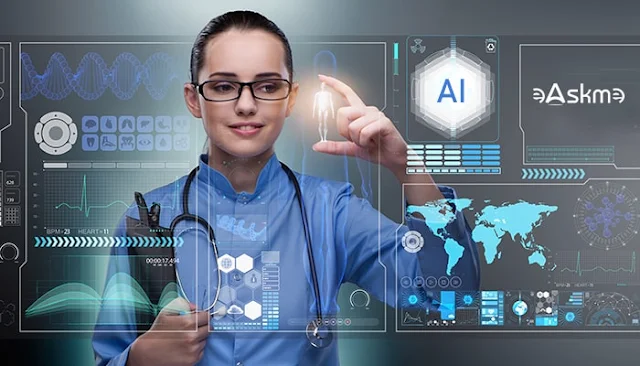The healthcare industry is one of the most successful stories of our time; this is alongside online slot machines, the internet, and technology in general.
Medical science has significantly improved over the past decade, increasing life expectancy globally.
However, with the increased life expectancy, other challenges have cropped up.
The most outstanding one is where our healthcare systems have been stretched thin by increased service demand.
 |
| How AI is Changing the Healthcare Industry?: eAskme |
This demand is driven by several unstoppable forces, including changing patient expectations, population aging, shifting lifestyle choices, etc.
Several efforts have been incorporated into the industry to streamline and make the services offered more accessible. Still, none has proven to be more effective than AI.
In the areas that Artificial Intelligence (AI) has been incorporated, it has solved some challenges that have existed for a while.
This article looks at some of the changes AI has brought to the healthcare industry and the effect they've had.
Automated Image Diagnosis:
AI applications have simplified the process of deciphering images while conducting diagnosis.
Through deep learning programs and technologies, AI systems have algorithms that can quickly read sophisticated images, including those of MRIs and CT scans.
These automated image diagnosis programs support doctors, helping them diagnose diseases faster.
Additionally, they are vital in combating the shortage of radiologists and other medical practitioners in hospitals.
Development of New Medicines:
It's not just in image diagnosis that AI has significantly made notable contributions.
The technology has helped in the development of new medicines.
Usually, coming up with a new drug for clinical trials requires a lot of money and time.
With Artificial Intelligence, this is bound to become a thing of the past.
Thanks to AI technology, healthcare professionals can scan pre-existing drugs and use the information to redesign medicines in ways that enable them to fight specific diseases.
This will save on the cost of developing new drugs and cut the time it takes to come up with one.
Bettering the Patient's Experience:
Overloaded medical facilities, insurance disruptions, increased reporting volumes, and many more issues have created a chaotic experience in the medical industry.
Getting the necessary medical attention or treatment has become a nightmare in some parts of the world.
However, with the incorporation of AI, such situations are being managed.
AI makes it possible to quickly gather the information fed into systems, analyze it, sort it out, and generate reports within seconds.
With the information provided, AI can check on the availability of doctors and help come up with schedules for the patients.
Robot-assisted Surgery:
Complex and life-saving surgeries require great care, precision, and skill.
With artificial Intelligence in healthcare robots, the number of operations that are successfully being completed is on the rise.
These healthcare robots have cameras, mechanical arms, and surgical equipment.
They can then be designed to reach any place in the human body, offering a clear and magnified view of the area under operation, far superior to what a regular surgeon can see.
This can help the surgeon perform a better surgery than when he/she decided to perform it alone.
Procedures done with humans and AI robots have proven to be less painful, take less time to complete, and help patients recover fast.
Supporting Operational and Administrative Workflow:
Artificial Intelligence can significantly better the operational and administrative workflow in the health industry.
Inputting information into laptops and other electronic devices or reviewing medical records can take up to 50% of the physicians' time, making it one of the leading causes of lost productivity.
To help reduce time spent reviewing the documents, clinical documentation tools that employ natural language processing can be incorporated to help physicians focus more on offering top-quality care.
Furthermore, health insurance companies can reap the benefits of using AI technology.
Evaluating claims is usually time-consuming, as 90% of the claims can be flagged as fraudulent or incorrect.
Natural language processing tools can also detect genuine claims in seconds instead of days/months.
Online Consultation:
Online consultations increase access to quality healthcare.
This is especially important in areas that are sparsely populated and have few or zero medical facilities in the vicinity.
Additionally, online consultations offer the opportunity to reduce costs.
Instead of spending money traveling to the hospitals, patients can directly consult with the physician online.
This way, they can divert the funds that would otherwise be used as transport money to purchase the prescribed medicines.
All in all, the benefits of AI in transforming the quality of services and products in the medical industry go a long way beyond what is listed here.
AI has innumerable applications in the healthcare industry, which revolve around simplifying the lives of doctors, patients, and administrators.
Whether it is in powering surgical robots, helping discover the links between genetic codes, or improving the efficiency of the hospital through digitization, the advantages of integrating AI into the health system have been a boon.
Still have any question, do share via comments.
Share it with your friends and family.
Don't forget to like us FB and join the eAskme newsletter to stay tuned with us.
Other handpicked guides for you;









.jpg)


